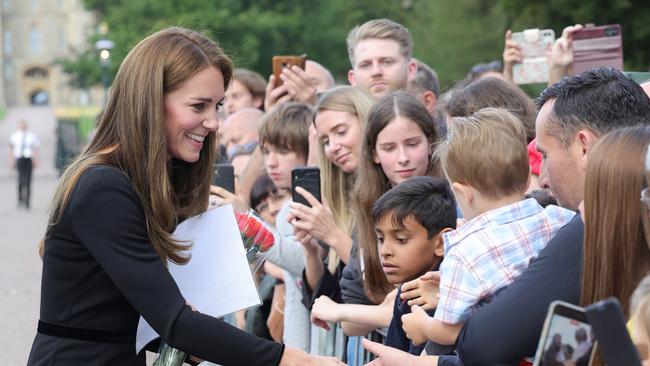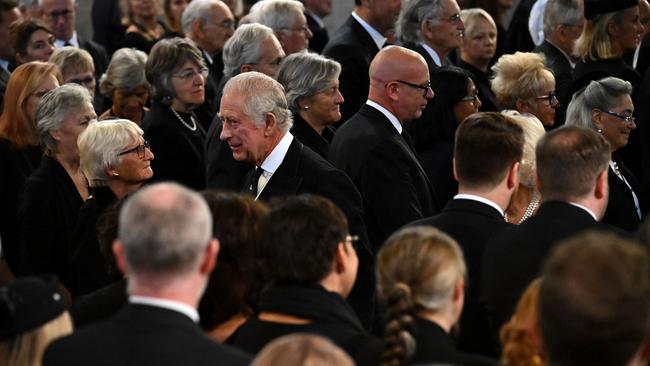Let’s decide on the voice, then get to the republic

The death of a queen who served as our head of state for 70 of the nation’s 121-year history will naturally provoke soul-searching about Australia’s place in the world and our identity as a nation.
It is not possible to speak of Australia’s political institutions without mentioning the monarch. Our 1901 Constitution mentions the queen (as Victoria was then on the throne) 47 times and her representative, the governor-general, 64 times. By contrast, the prime minister is not mentioned once. This reflects the centrality of the monarchy to our system of government, with the Constitution creating Australia as “one indissoluble federal commonwealth under the Crown”.
The role of queen or king of Australia was adapted from British institutions that evolved over centuries as sovereigns and parliaments struggled for ascendancy. The monarchs of England once led through autocratic means, even claiming a divine right to rule.
King James I declared in 1609 that “Kings are not only God’s lieutenants upon Earth, and sit upon God’s throne, but even by God himself they are called gods”. This supported the monarch having the right to make law and dispense justice without the approval of the people or parliament.
Over time, as parliament asserted its authority, monarchs lost much of their personal power. Most significantly, parliament gained the right to make laws, with the sovereign left only to rubberstamp those laws through granting royal assent. Parliament finally became the dominant English institution with the revolution of 1688. The monarchy was retained, but with the queen or king responsible in name only for administering the law. They retained little political power due to convention dictating that the monarch must act on the advice of their ministers in parliament.
These understandings define Australia’s political institutions to the current day. In our system the monarch is represented by the governor-general, who plays largely a symbolic role. Our national parliament formally includes the monarch, and in the courts criminal charges are brought in the name of the queen or king.
Many of our top barristers are still titled as Queen’s Counsel (QC), with the death of Queen Elizabeth II transforming them literally overnight into King’s Counsel (KC). Many other symbols will change in nations that had Queen Elizabeth II as their head of state. Currency depicting the face of the Queen will now be minted with the image of King Charles III. Official documents will be altered, including passports that beseech nations to admit the bearer in the name of “Her Majesty”. The UK’s national anthem has changed to God Save the King.
The Commonwealth of Nations may also be affected. The head of the Commonwealth was Queen Elizabeth II, but the title is not hereditary and does not automatically pass to her son. Members of the Commonwealth will honour an agreement that Charles succeed his mother, but the longer term is less certain. It makes less sense today to see the monarch as the head of an international political association with only 15 of its 56 members having the British monarch as their head of state.
The passing of the Queen will reinvigorate republican debate in member nations.
In Australia, the discussion has been dormant as a succession of political leaders have said the next republic debate must wait until the death of Queen Elizabeth II. Such a debate is now inevitable, though it will take time to build.

The enormous affection held for the Queen will rightly mean the focus remains on her life and achievements for some time. Few will see it as seemly to inflame republican sentiments during a period of mourning.
Republicans can bide their time knowing further opportunities will arise to make their case. One lightning rod will be Charles’s coronation in 2023. Republicans must in any event play the long game because there is no prospect of an early referendum on an Australian republic. The Albanese government has signalled its intent to progress the republic with the appointment of Matt Thistlethwaite as Assistant Minister. However, it has also signalled just as clearly that its first referendum will be on establishing an Indigenous voice. That vote will be held in the second half of 2023 at the earliest.
If the voice succeeds, the republic will take centre stage as the likely topic of Australia’s next referendum.
However, if the voice fails at the ballot box, it is hard to see there will be immediate enthusiasm for a second vote. The fate of these two nation-building reforms is intertwined, with an Australian republic depending on the success of Australia’s upcoming referendum on the voice.
George Williams is a deputy vice-chancellor and professor of law at the UNSW






The death of Queen Elizabeth II has been deeply felt, in part because the British monarch is embedded in Australian culture and political institutions. Some impacts will be symbolic, while others will raise questions about the nation’s independence from the United Kingdom.